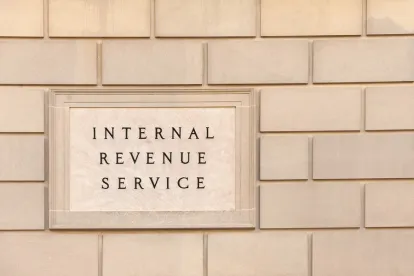President Trump issued a Presidential Memoranda (“PM”) on August 8, 2020 which, in part, directed the Secretary of the Treasury to defer the collection of social security payroll taxes from employees between September 1, 2020 and December 31, 2020. On August 28, 2020, the IRS issued Notice 2020-65 (the “Notice”) which provides guidance on how the deferral process will be administered. This Legal Update will provide an overview of the current status of the payroll tax deferral program, including best practice recommendations for employers for compliance and to avoid interest and penalties. There remain issues in the operation of this deferral program on which additional guidance is anticipated.
Treasury Guidance – Notice 2020-65
The Notice establishes the basic components of the payroll tax deferral for those implementing the program. Under this program:
-
Employers that are required to withhold and deposit the employee share of social security tax on wages earned would defer withholding/depositing such amounts from employees who earn less than $4,000 in a bi-weekly pay period for payroll periods on or after September 1, 2020.
-
This deferral applies to wages paid in any bi-weekly pay period between September 1, 2020 and December 31, 2020 in which the employee earns less than $4,000, irrespective of wages or compensation paid to the employee for any other pay period. Therefore, for an employee whose wages fluctuate, an employer may defer to collect the tax in one pay period, but be required to collect it for the next pay period.
While the Notice establishes a general payroll tax deferral component, it does not address whether employers or employees may choose to opt out of the tax deferral program. Prior to the issuance of the Notice, Treasury Secretary Mnuchin publicly announced that the deferral program would be optional. However, neither the PM nor the Notice explicitly confirm the mandatory or optional nature of the payroll tax deferral program. In relevant part, the Notice provides, “[I]f the amount of wages or compensation payable to an employee is less than the corresponding pay period threshold amount . . . the relief provided in this Notice applies to those wages . . . .” Given the articulated intention under the PM to “…put money directly in the pockets of American workers most in need,” and Treasury Secretary Mnuchin’s subsequent comments indicating that employers would not be required to defer withholding payroll taxes, the current language of the PM and Notice offers no definitive guidance on the mandatory/permissive nature of the program.
Payment of Deferred Taxes in 2021
Importantly, the deferral of the payroll tax collection obligations is not equivalent to a tax cut. Rather, it simply extends the employer’s withholding and payment deadlines—it does not forgive the tax obligations. While the President expressed his desire to have the deferred amounts forgiven by Congressional action, there is currently no such Congressional relief. Therefore, employers are well advised to understand their payment obligations in 2021 and the pitfalls that may face them in the operation of the program.
Under the Notice, employers are responsible for withholding the deferred amounts from employee pay after the deferral period ends on December 31, 2020. The deferred amounts are to be paid with employee payroll deductions on a pro-rata basis during the recovery period of January 1, 2021 and April 30, 2021. While employers are permitted to “make arrangements to otherwise collect” the taxes from employees in lieu of the payroll deductions, such “arrangements” are undefined in the Notice. However, the Notice is clear that an employer that fails to withhold and pay the taxes ratably from wages and compensation over the recovery period will be subject to interest, penalties and additions to tax on the uncollected deferred amounts as of May 1, 2021.
For employees continuing in employment, there will be a pro rata recovery of the deferred amounts over the recovery period. This will mean that employees will see reduced paychecks to account for what could amount to a double social security tax withholding amount for the first four months of 2021. The more perplexing issue is the liability imposed on the employer when the employee takes an unpaid leave of absence, quits, or is terminated before the deferred tax balance is recovered. Ultimately, it is the employer’s responsibility to ensure that the deferred taxes are paid; the deferral is just an extension of time, not a waiver. Therefore, if an employee quits after deferring payroll taxes but before the deferred amount has been withheld, the employer appears to be responsible for the uncollected deferred tax amounts unless it makes “arrangements” otherwise to collect the sums from the employee.
Best Practice Recommendations
Employers are encouraged to explore strategies to ensure compliance with the PM and Notice, as well as to avoid the liability associated with the unpaid share of the employees’ deferred payroll taxes. Absent additional guidance indicating that the deferral is optional, employers should contact their legal counsel for further guidance as to how to administer payroll during the deferral period and to assess the vulnerabilities and costs from compliance. For employers who intend to defer withholding the employee’s share of the social security tax, the following considerations are suggested for evaluation:
-
Decide whether the employer will treat the deferral of payroll tax withholding as being optional or mandatory;
-
If withholding is deferred, determine deferral eligibility of each employee on a pay period-by-pay period basis;
-
Continue withholding payroll taxes as usual for all employees who earn $4,000 or more in the pay period;
-
Defer withholding of applicable payroll taxes and provide notice to the employees of the legal obligation to pay the amounts ratably beginning in January, 2021;
-
Require employees who defer withholding of payroll taxes to sign a repayment acknowledgement that obligates the employee to repay the employee’s share of deferred payroll taxes that cannot be recouped via paycheck deduction because the employee is on unpaid leave, quits, or is terminated before the balance of the deferred amount can be satisfied by paycheck deductions; and
-
Ensure that any additional amounts deducted from an employee’s paycheck are timely deposited to satisfy the transmittal obligation of the PM and Notice.




 />i
/>i

